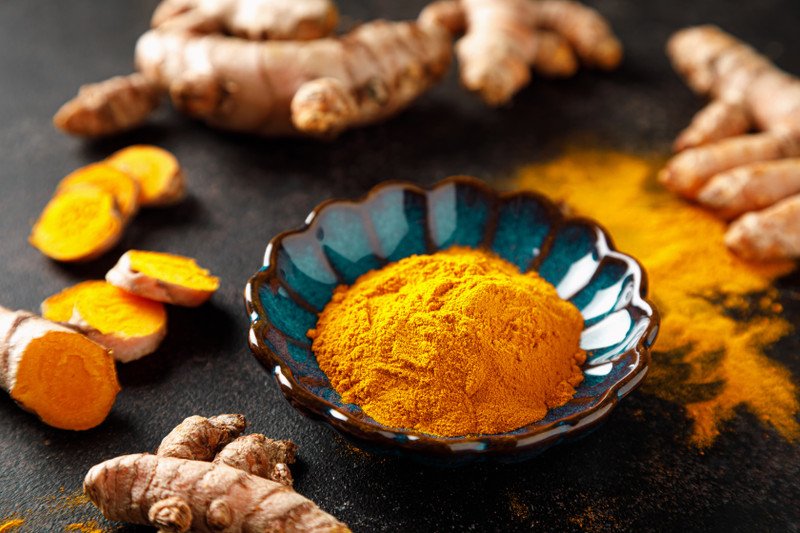Turmeric is widely known among supplements and herbs of the world as a ‘headliner” when it comes to popularity among natural-remedy enthusiasts. But anyone who is familiar with turmeric and its potent sources of health benefits also know the ‘inside story’ of turmeric, and that is that its main ingredient, the constituent known as curcumin, plays a robust supporting role.
Curcumin is a polyphenol, meaning that it belongs to a large group of chemical compounds that exist naturally in plants and fruits – and they number to the thousands; more specifically approximately 8,000 types. What seems to distinguish curcumin from other polyphenols is the multifaceted role it plays in assisting in the regulation of oxidative and inflammatory conditions in the body, as well as metabolic syndrome and arthritis among other conditions and mechanisms.
As an antioxidant, perhaps curcumin’s most significant role in enhancing human health is providing protection against damage caused by prolonged exposure to the sun’s rays or bodily contact with various chemicals in the environment such as pollution and cigarette smoke. Adding turmeric, and therefore curcumin, to your daily dietary regimen can also aid in thwarting the onset of chronic conditions, such as those in which tissues in your body – such as those around your gut and joints -- are under assault by harmful inflammation.
3 Other Health Benefits of Curcumin
Keeping turmeric/curcumin conveniently stashed in your medicine cabinet, pantry, or other easily accessed storage areas is advisable for a number of reasons related to its many benefits. Be sure to take the time to discuss its use for the first time with a healthcare professional to make sure, among other considerations, it won’t conflict with any prescription medicine you might be taking. Following are three more potential health benefits of curcumin:
Improve brain health. Curcumin is believed to be capable of bolstering memory and brain health in general by helping to ramp up the proliferation of brain chemicals associated with improved memory formation and growth.
Alleviate depression. At least one study has shown that curcumin was just as effective as Prozac is lessening the effects of depression, doing so by bolstering serotonin and dopamine levels in the brain, thus helping in the regulation of mood and other related body functions.
Reduce risk of heart disease. Some research has shown that proper administration of curcumin can regulate and reduce some levels of cholesterol, thus adding a layer of protection for those people deemed at a higher risk of heart disease. Some studies have also shown that a daily regimen of curcumin administered to middle-age and older healthy adults for a period of 12 weeks improved resistance artery endothelial production. That is a key factor in lowering high blood pressure, a symptom related to a higher risk of developing heart disease.
Turmeric and its chief constituent, curcumin, are included on the short list of popular supplements/herbs that have gone to the head of the class among natural remedies known for their abundance of health benefits and great reputations in the marketplace. Keeping curcumin in hand in your household is like having a reliable skilled handyman on speed dial: the former can be ‘on call’ to administer to your body’s health in a variety of areas just like the handyman can do for the sake of your home’s ‘health.’ Be sure to discuss your planned use of turmeric/curcumin with your personal physician or other healthcare professional before making any sort of change in your daily diet regimen.

